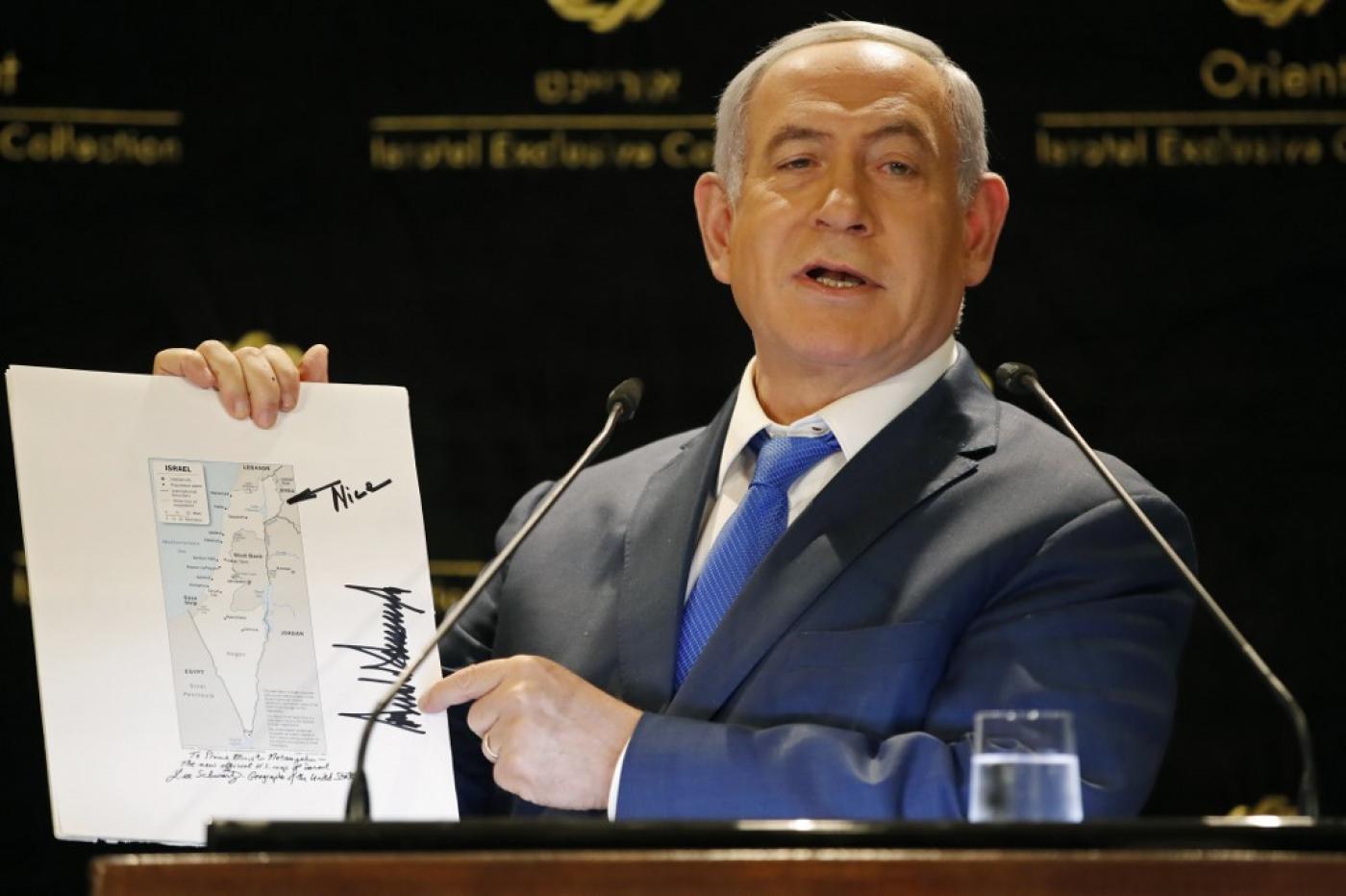Israel and the West: ‘Shared values’ of racism and settler-colonialism

Over the last two decades, the boycott of Israel has become a significant part of the resistance of the Palestinian people and their international supporters to Israeli racism, settler-colonialism and military occupation
The Palestinian boycott, divestment and sanctions (BDS) movement seeks to achieve several strategic goals: ending Israel’s occupation and colonization of Palestinian lands, ending Israel’s institutionalized racism, and ensuring the return of Palestinian refugees.
The BDS movement has garnered global support, including from academics, artists, athletes, churches, unions, human rights groups and businesses.
Symbolic boycott
A strategy of symbolic boycott has been adopted by some Western governments, including the United Kingdom and the European Union, which have advised or required labeling of Israeli goods manufactured in the settler-colonies of the West Bank, East Jerusalem and the Golan Heights. But the UK and the EU refuse to endorse BDS, even though they officially consider the settlements illegal under international law.
When the boycott of products of Israeli settlements intensified, the UK government moved to ban the practice. The German parliament recently adopted a non-binding resolution, brought by Chancellor Angela Merkel’s Christian Democratic Union, accusing the anti-racist BDS movement of “antisemitism”.
Western governments claim to support Israel due to their ostensibly “shared values”. In 2018, Emanuele Giaufret, the EU ambassador to Israel, declared that Israel and the EU “share the same values. We believe in democracy, the rule of law and human rights”.
The same year, Prime Minister Theresa May declared that the UK was “proud to stand side-by-side with Israel as an ally … and a close friend with shared values”.
In 2017, US President Donald Trump declared in Israel that “we pledge to stand by you and defend our shared values”. He was parroting former President Barack Obama, who often asserted that “the bond between Israel and the United States is rooted in … shared values”.
Earlier this year, Canadian Prime Minister Justin Trudeau tweeted that “Canada and Israel have a special bond, rooted in mutual respect and shared values”.
In 2017, Australia’s Malcolm Turnbull and Israeli Prime Minister Benjamin Netanyahu declared: “The friendship between Israel and Australia … is anchored in our shared values, [including the] commitment to democracy.”
Colonial conquest
Liberal Palestinians and their supporters claim that there is a contradiction between the values of Western governments, seen as democratic, and Israel, a state based on colonial conquest, racist laws and military occupation. But is there really a contradiction?
The US and European governments that supported Zionism in 1917 were aware of its racist and colonial basis - values and commitments they shared. In 1917, many European countries had colonies and settler-colonies governed in accordance with white supremacist criteria and laws.
The US, a settler-colony itself, operated the Jim Crow system of racial segregation that lasted through the 1960s, and denied citizenship to Native Americans until the Indian Citizenship Act of 1924, though “Indian” voting rights remained circumscribed.
When these countries supported the establishment of Israel in 1948, their shared values and commitments to settler-colonialism and racism were identical. In 1947-48, French soldiers went on a rampage in Madagascar, killing, torturing, raping, and torching villages. They killed tens of thousands of people.
In Vietnam, France killed hundreds of thousands of Vietnamese people between 1945-1954 before it was defeated at Dien Bien Phu. In Algeria, the French denied Algerian Muslims equal rights with French colonial settlers. Hundreds of thousands of Algerians were killed in the struggle to end settler-colonialism.
Britain’s policies were hardly any different. In Kenya, to safeguard its colonial settlers, Britain in the 1950s launched a savage war against the Mau Mau, who fought to end settler-colonialism. The British tortured, raped and jailed the Mau Mau in a campaign estimated to have left tens, and perhaps hundreds, of thousands of people dead. The African victims of the British settler-colony of Rhodesia also suffered under British nominal rule.
Outright suppression
When Western countries again supported Israel’s conquest in 1967, racial discrimination was still operative in the US after the cancellation of most of the racist Jim Crow laws in 1965, while the police was actively suppressing the Civil Rights Movement and the US military was carpet-bombing Vietnam.
France and the UK had just extricated themselves from colonial policies, but not from racism. Western support for the settler-colony of South Africa proceeded, despite calls at the UN to boycott the apartheid regime. Israel became apartheid South Africa’s closest ally.
Only with changing Western attitudes to South Africa, and with their joining the boycott movement in the 1980s and 1990s, did these commitments begin to waiver.
Yet in the cases of the US, Canada and Australia, suppression of indigenous rights is a value they continue to share with Israel, and for which neither the UK nor the EU ever criticize them.
The Palestinian people’s democratic goals, and their commitment to end Israeli racism and settler-colonialism, are values that Western governments refuse to share. The values these governments share with Israel, contrary to their false claims, are not democracy and freedom for all - but rather the outright suppression of non-white and indigenous peoples.
By Joseph Massad.
- Joseph Massad is Professor of Modern Arab Politics and Intellectual History at Columbia University in New York. He is the author of many books and academic and journalistic articles. His books and articles have been translated to a dozen languages. His article appeared in the Middle East Eye.

WRITE YOUR COMMENT